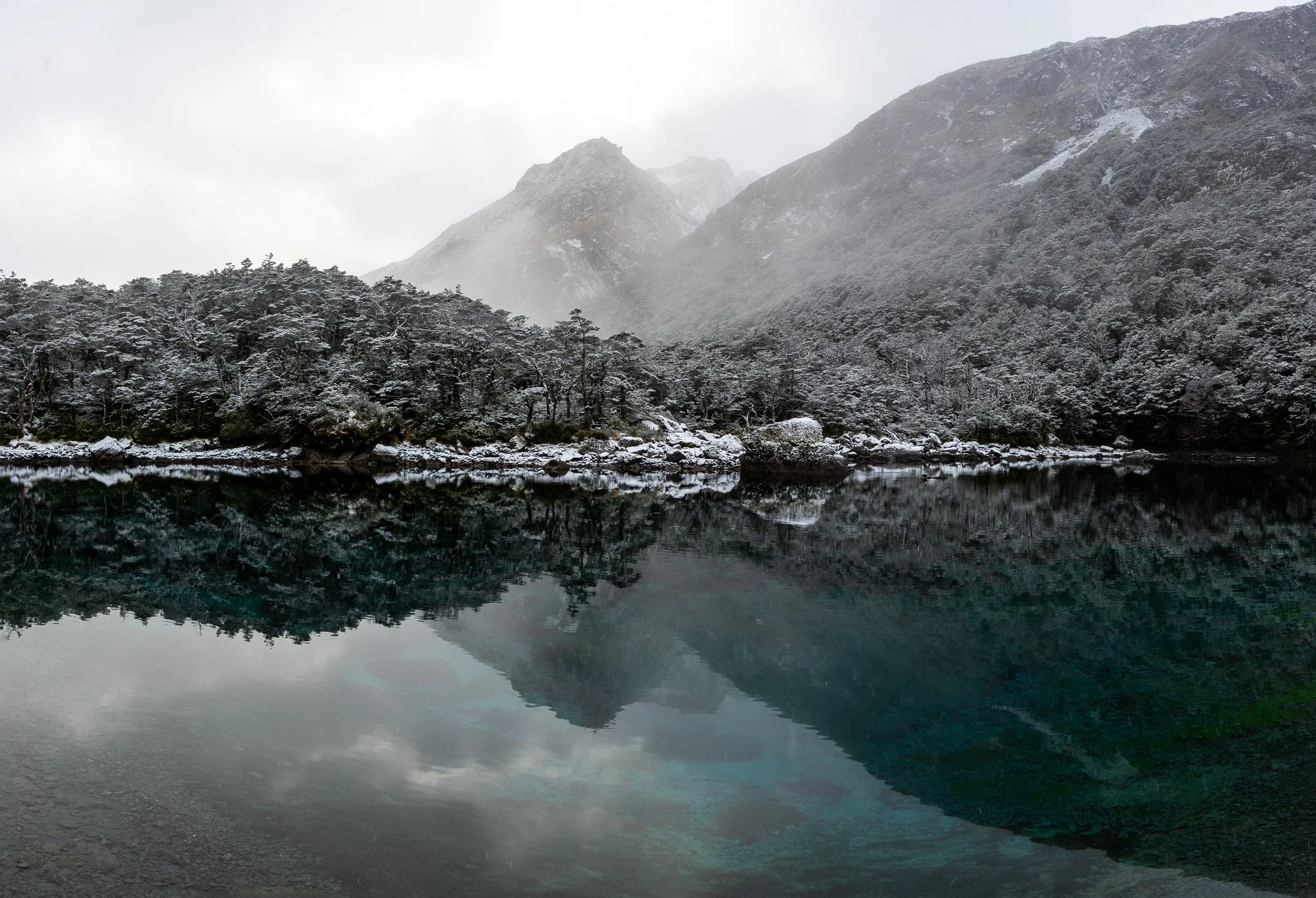Nelson Lakes National Park
Blue Lake, the clearest lake in the world, on a snowy morning.
Spanning over 1,000 square kilometres, Nelson Lakes National Park is known for its crystal-clear alpine lakes and dramatic mountainous landscapes. The two main lakes, Rotoiti and Rotoroa, are classic examples of glacial lakes, formed by the retreat of ancient glaciers and fed by crystal-clear alpine streams.
-
All the lakes and numerous rivers support diverse aquatic ecosystems, home to native fish species such as the koaro and longfin eel. The ranges steeply rising above are interwoven with ancient beech forests, home to numerous endemic bird species like the South Island robin and the kiwi. At higher elevations, the park transitions to subalpine shrublands and alpine meadows, where hardy species and various tussock grasses thrive in harsh conditions..
The park also plays a critical role in conservation efforts, particularly for the protection of endangered species and habitats. Initiatives such as Friends of Rotoiti help control invasive species and habitat restoration are ongoing to preserve the unique biodiversity of this region.
I first got introduced to Nelson Lakes National Park in September 2023. Frequent avalanches and changeable weather prevented more extensive exploration, but we lived and worked from our campervan at Kerr Bay Campsite at Lake Rotoiti for a week, hiking up Mount Robert and St. Arnaud Saddle. It was a peaceful experience and a place that reminded me so much of Patagonia. In June 2024, as my working holiday visa experience in New Zealand was ending, I felt in my heart that I wanted to see the Southern Alps once more before leaving. The Sabine-Traverse Circuit in Nelson Lakes National Park was the first thing that came to mind. Together with Sandra, my coworker at YHA National Park, we completed the trek in a week, including extensions to the Hopeless Hut, Blue Lake, and Angelus Hut. It was a proper goodbye that New Zealand deserved. As we hiked out of the main season, the huts and trail were empty, and we even experienced snow at Blue Lake - the clearest lake in the world.
Sunrise view over Mount Hopeless, on an opening just a few meters from the Hopeless Hut.
Travers falls in the Traverse Valley.
Tussock and mountains surrounding Upper Travers Hut.
Descending from Traverse Saddle. Mahanga ranges above the sea of clouds.
Mount Franklin from the northern side, walking towards Blue Lake hut.
Blue Lake - the clearest known natural freshwater in the world, with visibility reaching up to 80 meters.
Blue Lake Hut on a snowy morning.
Traversing Robert Ridge towards Angelus Hut.
Angelus Hut, the most popular hut in the park, at sunset.










